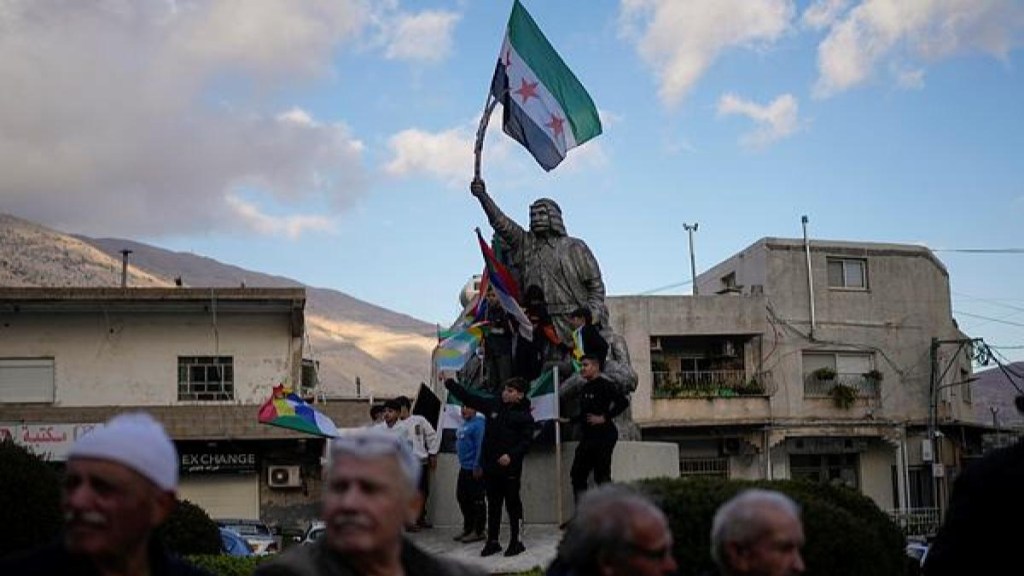As Syria stands at a historic crossroads, UN Special Envoy for Syria, Geir O Pedersen, has outlined the immediate opportunities and the grave risks facing Syria, the country, stressing the need for calm, inclusive political arrangements, and urgent international cooperation.
Addressing the media in Geneva, he talked about the rapidly changing dynamics in Syria following the recent fall of President Bashar al-Assad’s government. The last few days, Pedersen stated, have brought an unexpected and “extraordinary” military shift, which has led to the collapse of Assad’s regime.
Syria’s Sudden Shift: A Historic Turning Point
The focus of Pedersen’s address centered on the sudden and unforeseen fall of the Assad regime. Reflecting on the rapid turn of events, Pedersen said, “What has happened in the last few days, no one, absolutely no one saw this coming.” With Assad ousted and Damascus falling to opposition forces in just two weeks, Syria is now confronting a drastically different future.
This unforeseen shift marks a critical moment in the country’s ongoing civil war. While it presents opportunities for peace, it also raises significant challenges. Pedersen cautioned, “Syria is now at a crossroad with great opportunities, but also with grave risks.” The rapid changes in power dynamics, combined with the country’s deep-rooted divisions, create both hope for a new beginning and the possibility of further instability.
HTS Takes Control: A Divided Opposition
A key point in Pedersen’s remarks was the rise of Hayat Tahrir al-Sham (HTS), which has emerged as the dominant group in control of Damascus following Assad’s fall. Despite this, Pedersen clarified that HTS is not the only armed group in the capital. Other factions, including the Syrian National Army and various groups from the south, maintain significant influence.
Pedersen described the current situation as one where Syria is under the control of a “patchwork of groups,” many of whom are working together but have not fully united. He pointed out, “Much of what some-called rebel-controlled Syria is under the control of a patchwork of groups, who are coordinating well for now, but they are not fully or formally united.” While cooperation among the factions has been beneficial so far, the absence of a cohesive political structure remains a critical issue.
Despite these divisions, Pedersen noted that HTS and other armed groups have made positive statements, indicating their intention to maintain law and order and ensure protection for civilians. “By and large, we have seen reassuring statements from the HTS and the different armed groups,” he observed. However, he also acknowledged the potential risks of lawlessness, referring to reports of looting and disorder in the initial aftermath of Assad’s collapse.
Urgency for De-escalation and Avoiding Further Conflict
Another significant aspect of Pedersen’s message was his call for de-escalation, particularly in northern Syria and in regions affected by external intervention. “We need to make sure that the conflict in the northeast stops,” he urged, referencing the ongoing clashes between the Syrian National Army and the Syrian Democratic Forces (SDF). Pedersen emphasized the necessity of avoiding further escalation, as these regional tensions risk spilling over into broader conflict.
Moreover, he voiced serious concern over Israel’s military actions in Syria, which have continued despite the changing political landscape. “We are continuing to see Israeli movements and bombardments into Syrian territory. This needs to stop,” he stressed. Pedersen warned that such interventions complicate the fragile situation in Syria and called for international actors to refrain from actions that could destabilize the country’s precarious peace.
The Path Forward: Inclusivity and Political Transition
A major theme in Pedersen’s remarks was the importance of an inclusive political process. He stressed that for Syria to avoid further conflict, the transition to new governance must be representative of all communities, including groups that had supported the Assad regime. Pedersen made it clear: “There needs to be orderly arrangements, but it also means, and this is extremely important, it needs to be inclusive arrangements.”
In his view, any transition that fails to include a broad range of Syrian groups, including minorities and political opponents, would risk reigniting conflict. “If this is not happening, then we risk new conflict in Syria,” he warned. The stakes are high, and Pedersen’s call for a representative government underscores the delicate nature of the current moment.
Pedersen also addressed the role of HTS in this process. While HTS has been classified as a terrorist organization by the UN, Pedersen acknowledged that the group has made efforts to present itself as a more moderate force.

